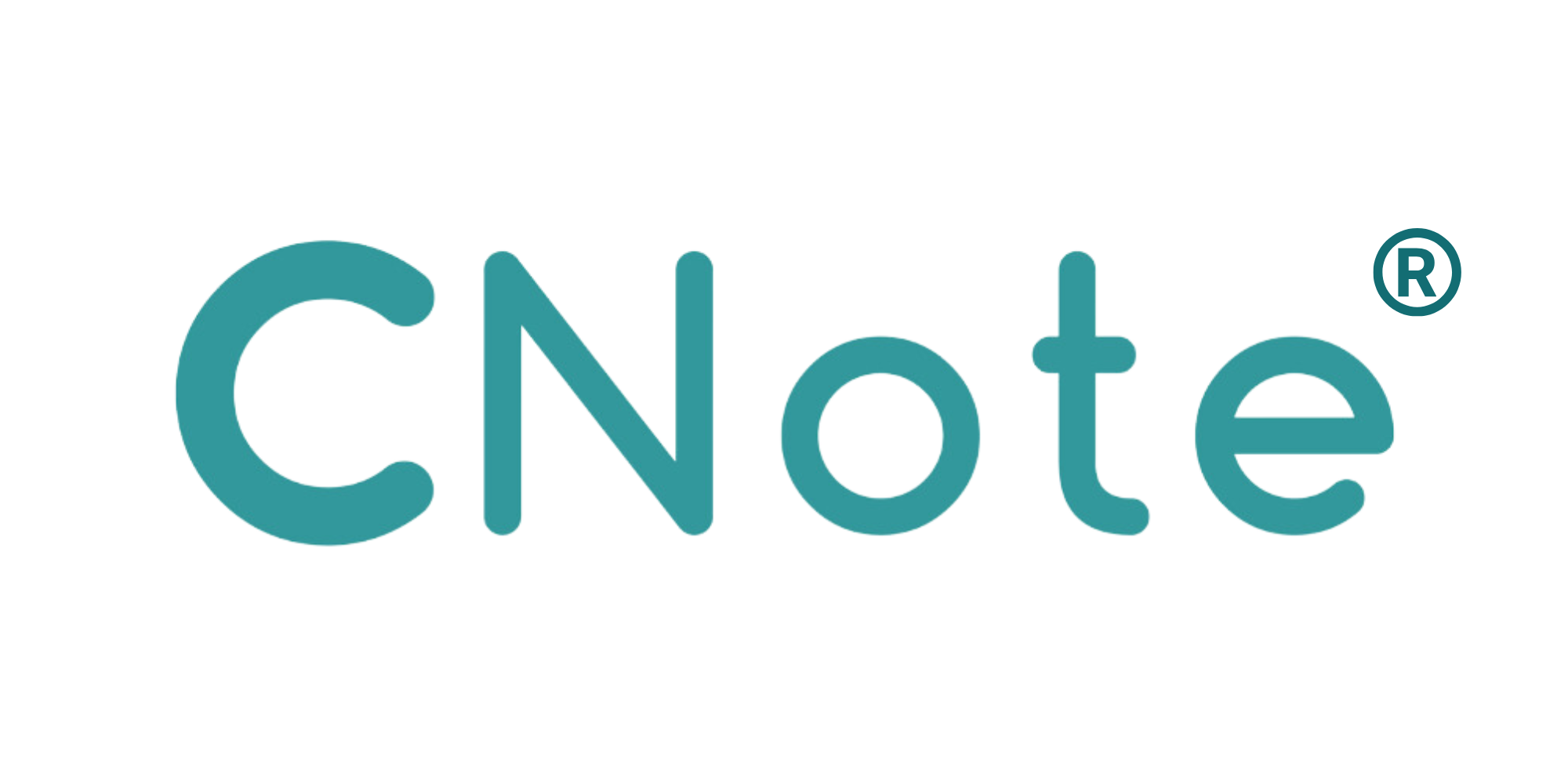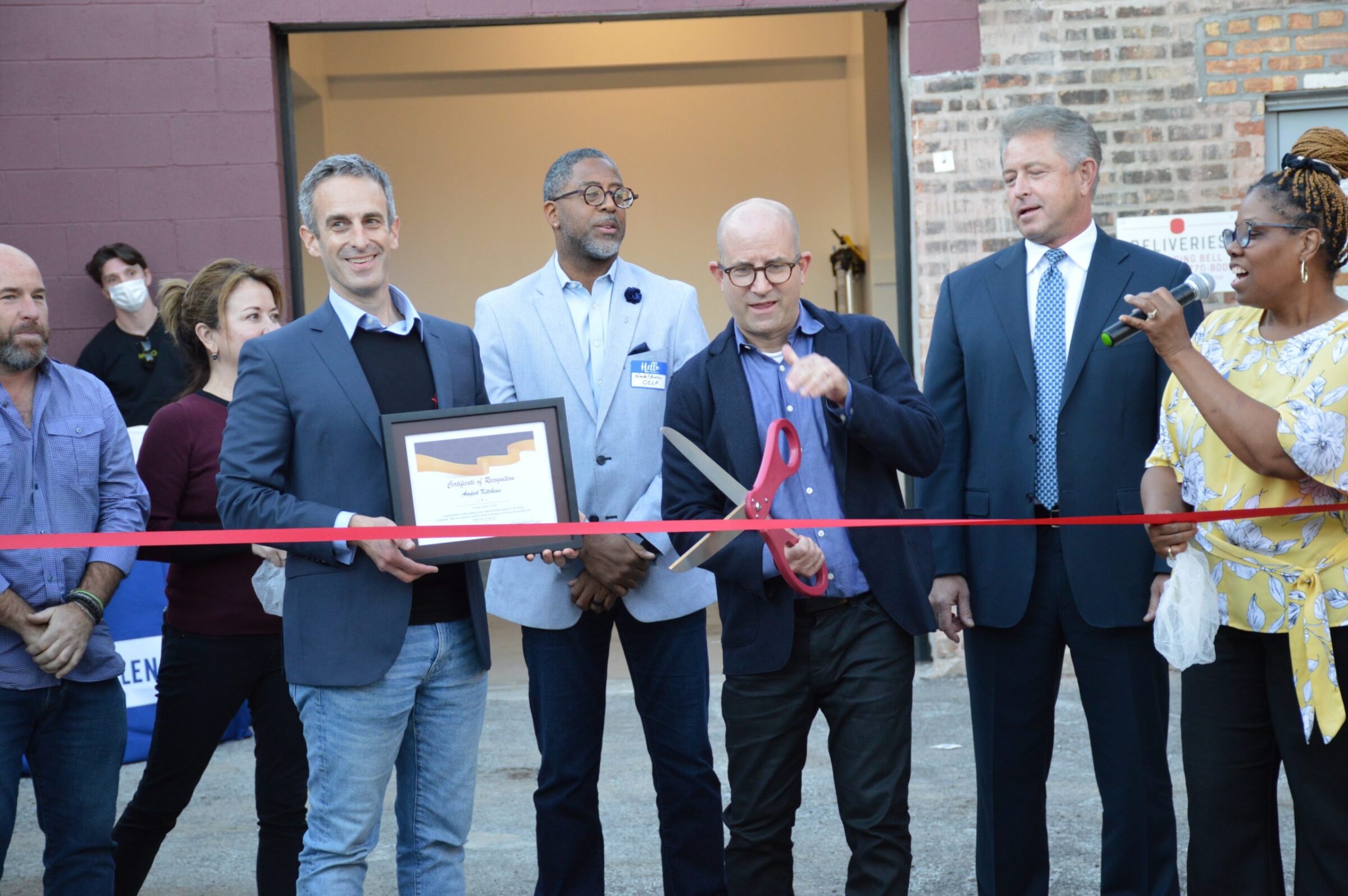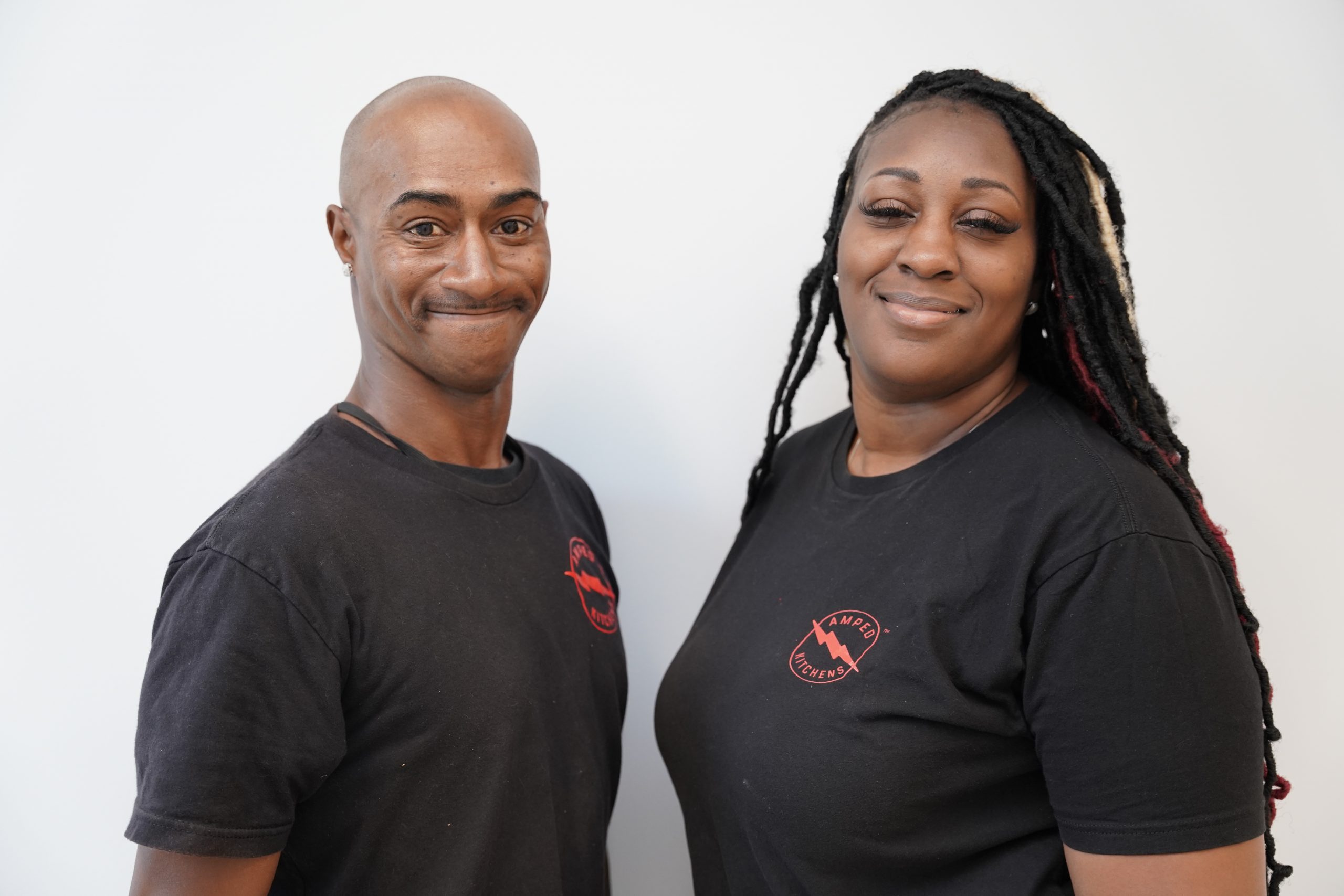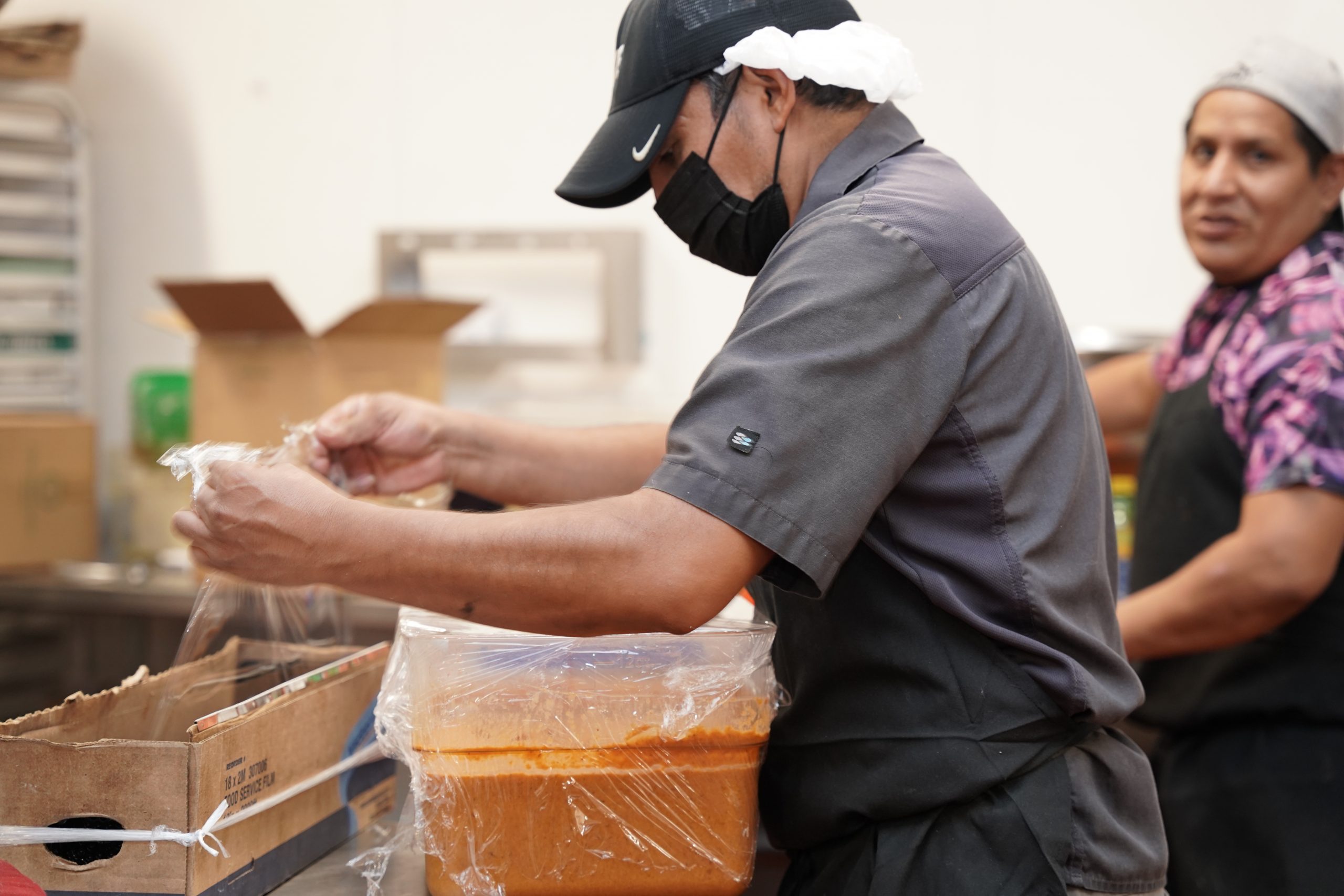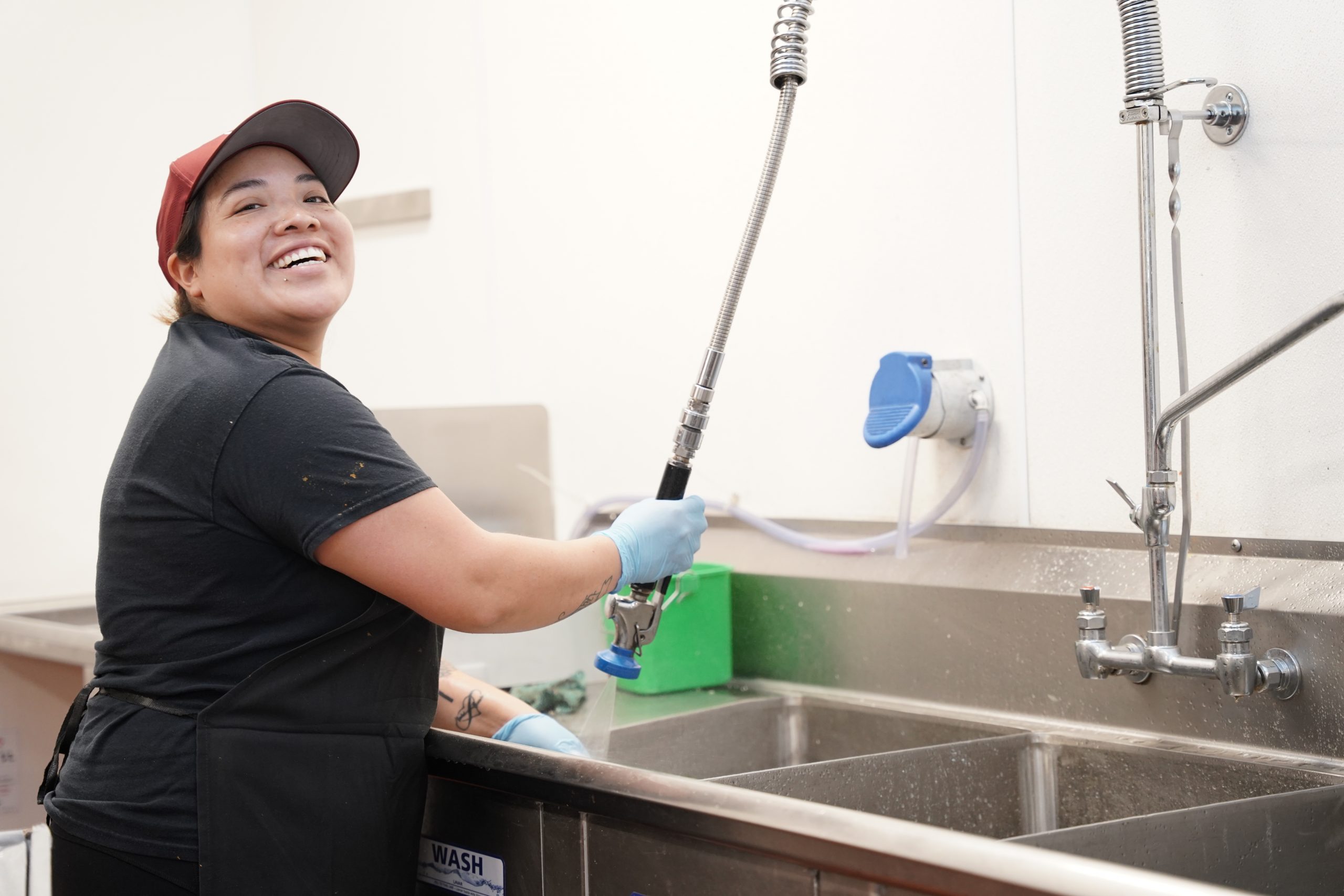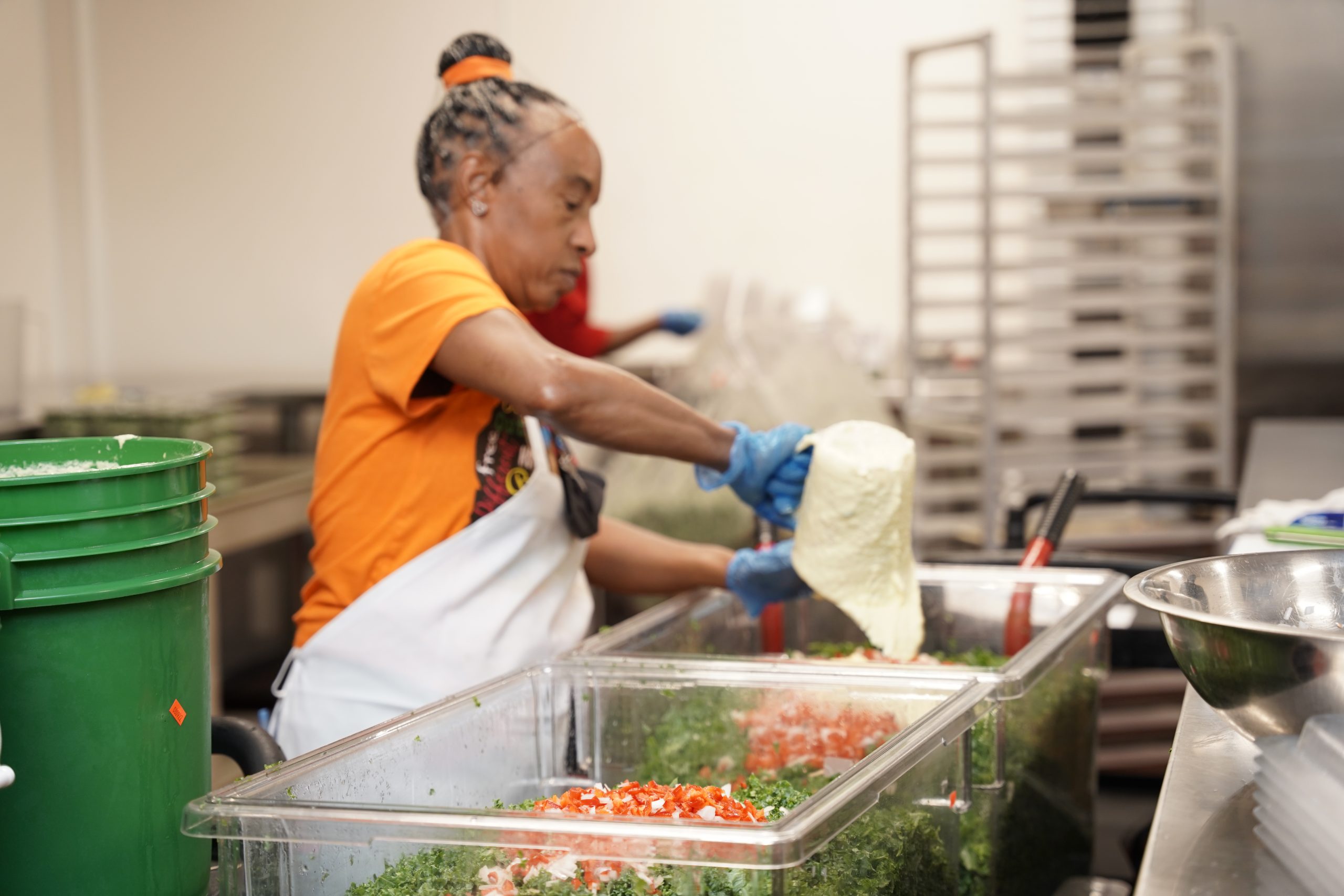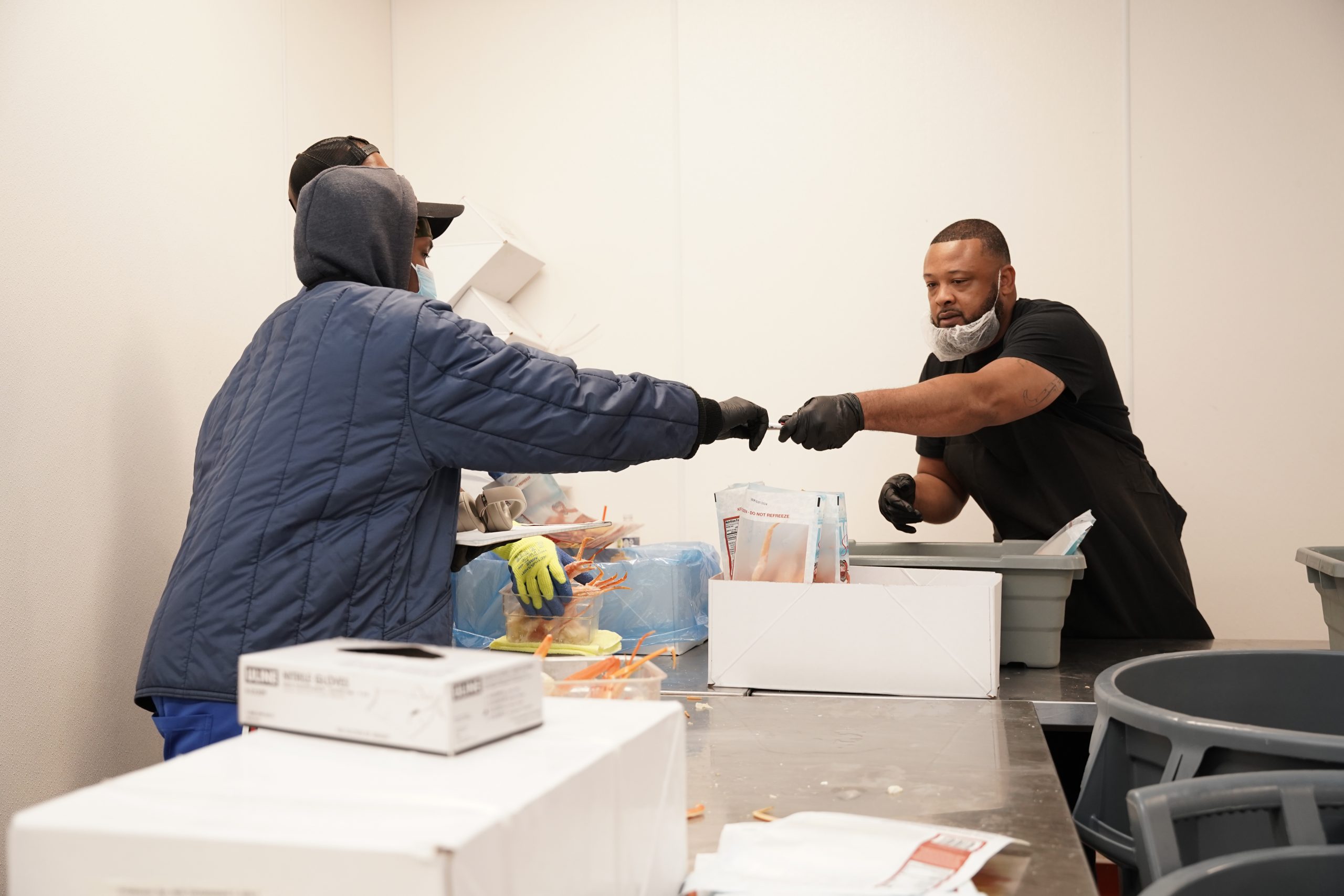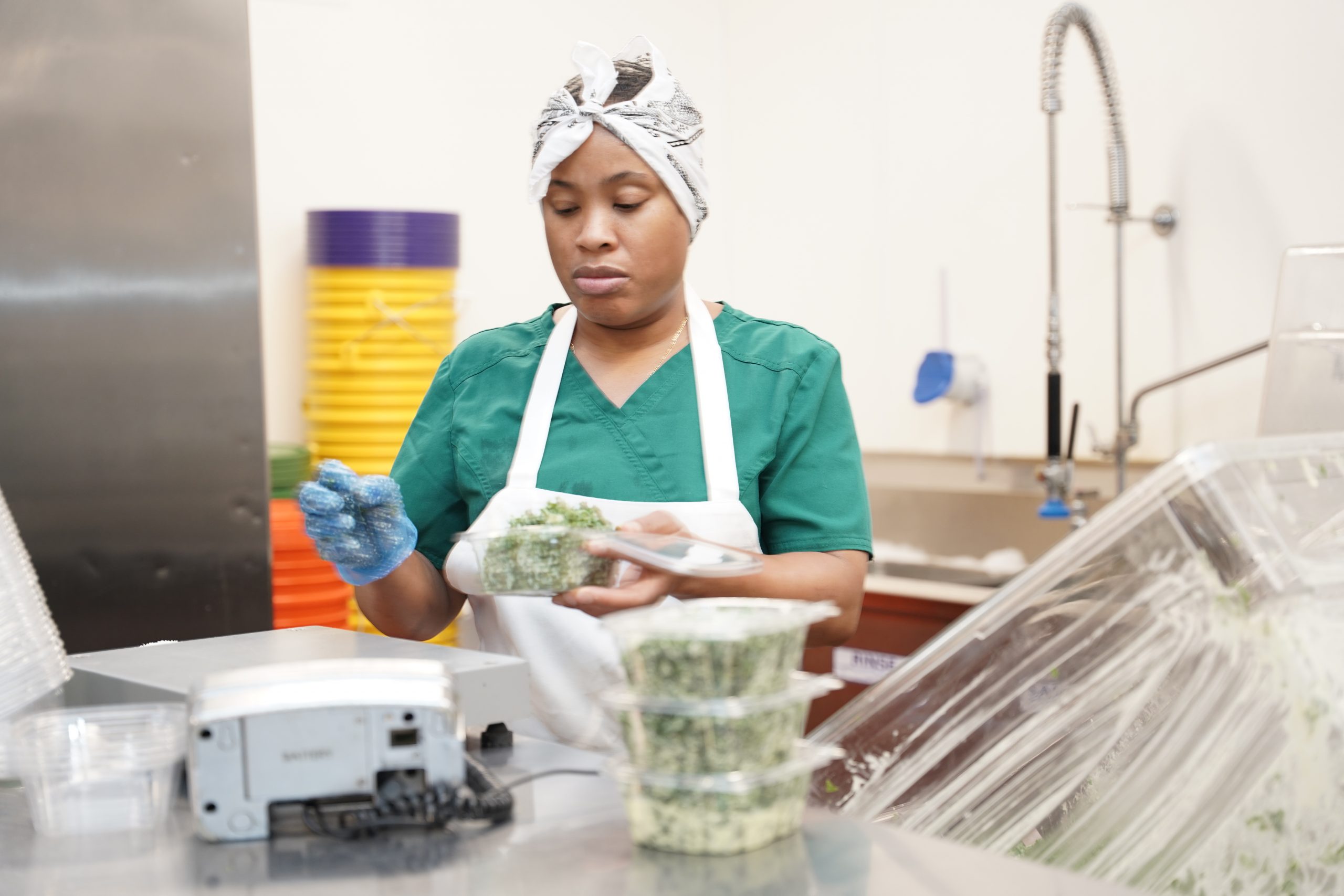When Wendell Harris found himself out of a job in 2013, he wasn’t exactly sure where he was going to land within the world of banking and real estate. Fortunately, Robert Rose, one of Wendell’s former bosses, heard that he wasn’t working. At the time, Robert was in a leadership role at Chicago Community Loan Fund, a federally certified community development financial institution (CDFI). Robert called Wendell and told him to report to work in two weeks. Wendell joined Chicago Community Loan Fund as a senior loan and program officer, and six years later, he became the vice president of lending operations.
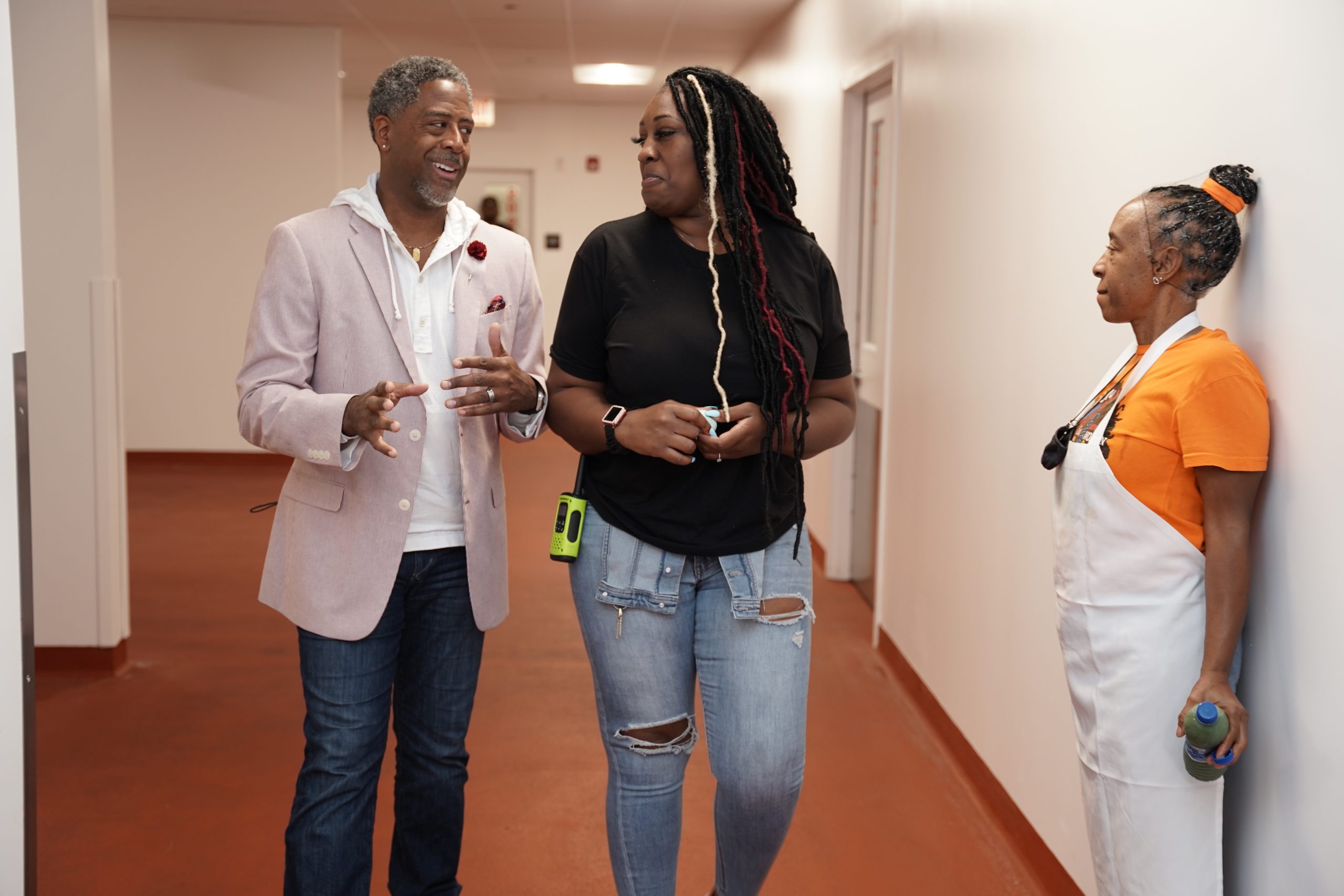
Chicago Community Loan Fund was founded in 1991 by a group of social-investment advocates who wanted to create a nonprofit lender to provide flexible, affordable, and responsible financing and technical assistance for community stabilization and development efforts in Chicago. Additionally, the nonprofit wanted to fill community development credit gaps by launching initiatives that would benefit low- to moderate-income individuals, families, and neighborhoods throughout metropolitan Chicago. Like other CDFIs across the country, Chicago Community Loan Fund prides itself on ensuring that community developers in Chicago have an accessible lender to turn to for harder-to-underwrite projects and enterprises.
Wendell has been firmly behind Chicago Community Loan Fund’s mission from his first day with the CDFI. Wendell’s father, Moses Harris migrated to Chicago in 1956 where he landed a job as a machinist at the former Oscar Meyer meat packaging plant across the street from the Cabrini-Green housing project. Wendell’s mother, Ruth, followed in 1957 after attending a year of college at Tougaloo College in Mississippi. She continues to share her experiences on picking cotton in Mississippi. Wendell’s parents were part of the Great Migration of Black Americans leaving the South for cities in the North and West. His parents married in 1958 and moved to Markham, Illinois in 1965. Wendell’s parents were parents to the entire community of Markham. Moses kept the kids occupied with sports while Ruth sang heavenly gospel notes throughout the South Suburbs and Chicago. Wendell was surrounded by family members (including 3 older brothers), friends, and community members with varying levels of business acumen. “I still remember Mr. Faulkner. To see a black man in the 1980’s own a bumper company in Markham and a Chrysler dealership in Harvey, Illinois, meant a lot to us. Slavery is more than just chains and shackles,” he said. “Economic slavery hit our communities had and we continue to be boxed in to limited opportunities”
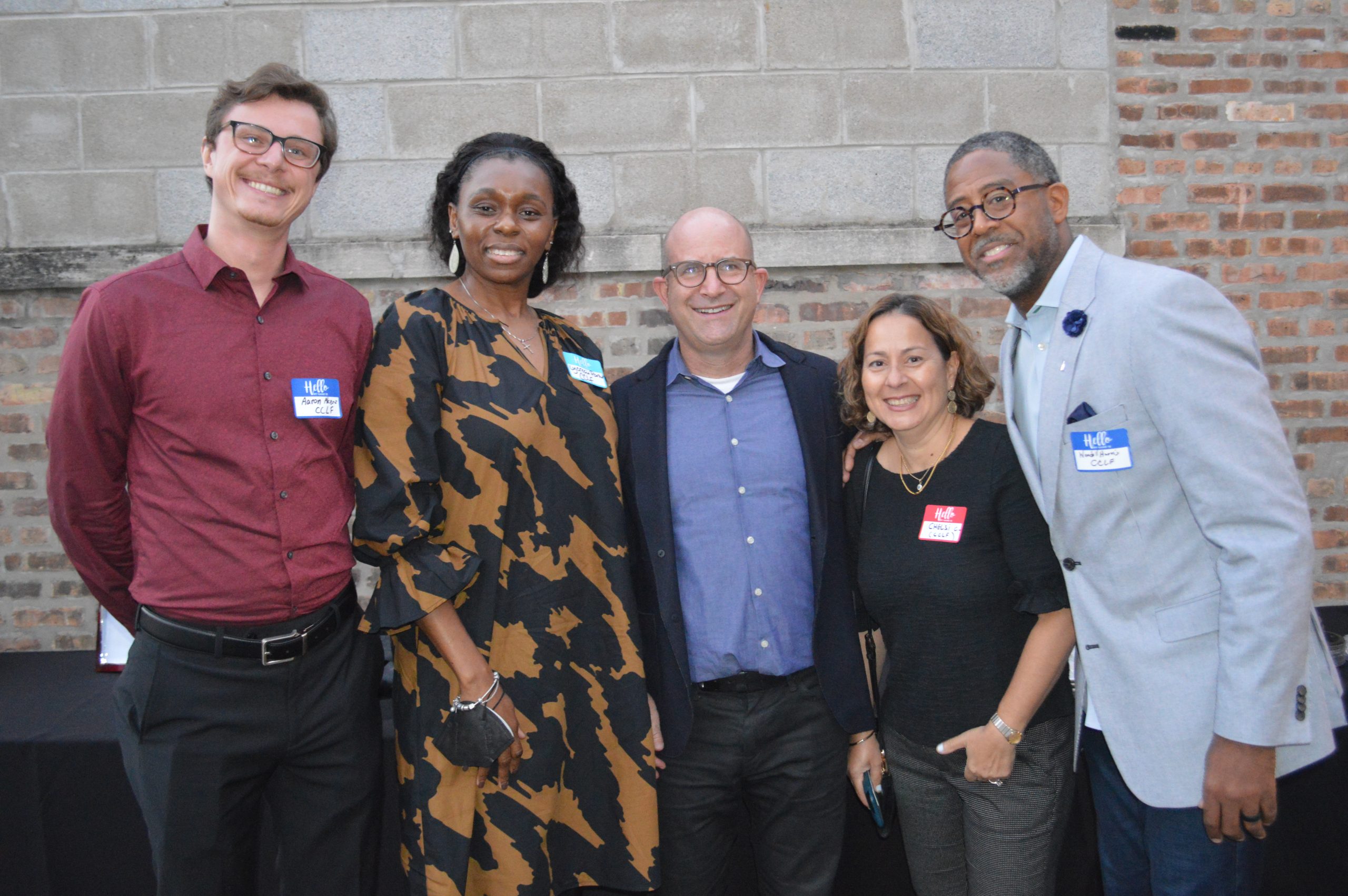 Unsurprisingly, Wendell and his colleagues have an unmatched desire to shrink the wealth gap in metro Chicago, with an emphasis on the South and West sides of Chicago by giving people in the community the opportunities they need to be successful. For Wendell, that means underwriting deals — deals that traditional lenders won’t touch — that will ultimately benefit both community members and the CDFI. In the past five years, Wendell has underwritten investments at Chicago Community Loan Fund that leveraged more than $443 million in real estate transactions that strengthen lower-wealth communities. “We want to allow wealth to flow,” he said. “When that wealth flows, it opens up more opportunities, because families have more to do more with. At the end of the day, our role is to help create more wealth in these communities — period.”
Unsurprisingly, Wendell and his colleagues have an unmatched desire to shrink the wealth gap in metro Chicago, with an emphasis on the South and West sides of Chicago by giving people in the community the opportunities they need to be successful. For Wendell, that means underwriting deals — deals that traditional lenders won’t touch — that will ultimately benefit both community members and the CDFI. In the past five years, Wendell has underwritten investments at Chicago Community Loan Fund that leveraged more than $443 million in real estate transactions that strengthen lower-wealth communities. “We want to allow wealth to flow,” he said. “When that wealth flows, it opens up more opportunities, because families have more to do more with. At the end of the day, our role is to help create more wealth in these communities — period.”
It Takes The Whole Village
Chicago Community Loan Fund plays a unique role in community development efforts throughout Chicago. Not only does the CDFI offer complete financing for small projects that other lenders won’t cover, but Chicago Community Loan Fund also steps in to fill credit gaps for larger projects. That was the case with Amped Kitchens Chicago: a $25.3 million deal to turn a 117,000-square-foot vacant warehouse in Chicago’s Northwest Side into an “apartment building for food companies.” While Chicago Community Loan Fund only lent $4 million to the project, Wendell and his colleagues collaborated closely with a local team of nontraditional lenders like Local Initiatives Support Corporation (LISC) Chicago, BlueHub Capital, and Chicago PACE to bring the project to life.
Amped Kitchens is a Los-Angeles-based “growth kitchen” company that rents out space and offers amenities and support to businesses wanting to grow. Unlike ghost kitchens, Amped Kitchens focuses more on creating space for wholesale production and distribution, including storage space, offices, conference rooms, and loading docks. Still, when Wendell initially learned that Amped Kitchens wanted to establish its third location in Chicago, he was skeptical. The concept wasn’t new to the Windy City — The Hatchery Chicago’s 67,000-square-foot facility, for example, was already one of the largest food incubation spaces in the country at the time. However, the more Wendell learned about the project, the more he understood how Amped Kitchens could serve the needs of chefs and small business owners in an important way, primarily by offering more space to entrepreneurs who’d outgrown their smaller kitchens. Additionally, given all of the factors at play, Wendell knew that this was a project that would be very difficult for a traditional lender to get behind. “This is part of the cycle of allowing entrepreneurs to really be able to stand on their own,” Wendell said. “And it’s taken the whole village. It’s taken the innovation of the folks in the kitchen, it’s taken the CDFIs’ patience to be able to figure out how to fund it, and it’s taken the large institutional investors to make this happen.”
According to Wendell, the Amped Kitchens project experienced its fair share of hurdles, including the COVID-19 pandemic; however, in October 2021, the new facility officially welcomed its first tenants. Amped Kitchens Chicago is divided into 64 commercial kitchens that range in size from 150 square feet to 2,000 square feet, and although it hasn’t reached full capacity yet, inquiries, tours, and new leases continue to trend upward. Amped Kitchens has already become an important partner in allowing local grassroots food businesses like Soul Vegan, Half Day, and Scone House Cafe to mature in Chicago, helping to give entrepreneurs another stepping stone on the path from their home kitchens to owning their own commercial real estate, having a more viable presence in the community, and building wealth.
That’s precisely the kind of legacy that Wendell wants to leave behind. Although he isn’t preparing to retire anytime soon, Wendell wants to be able to look back at the work he’s doing at Chicago Community Loan Fund, including the Amped Kitchens project, and know that he was part of building wealth for people in his community. “I want a couple of generations down the line to be able to look back and not have to see how close they are to slavery,” Wendell said. “I’m hoping to be able to help put the families behind these businesses in a better position to be able to pass on more wealth to their children.”
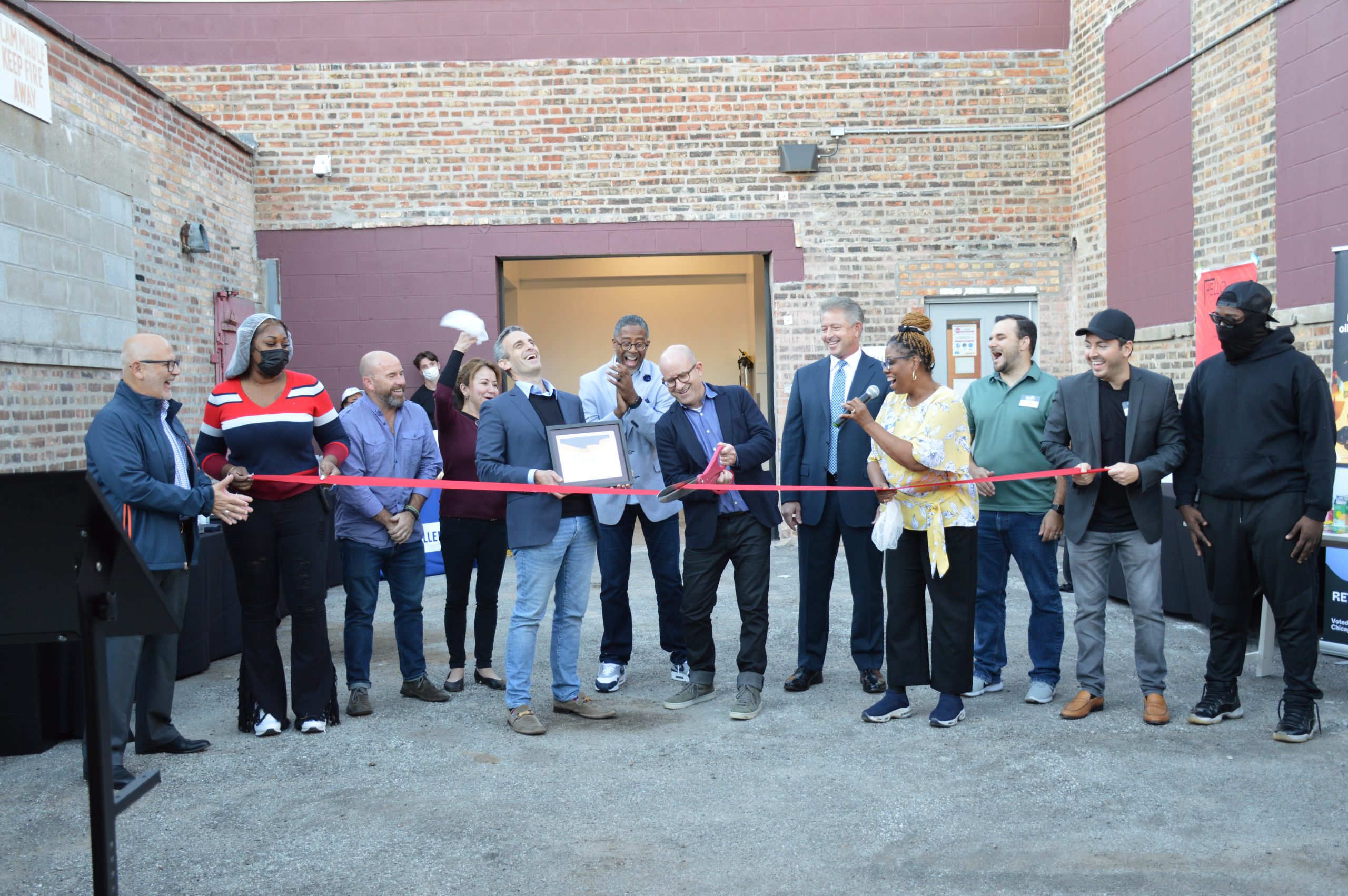 Learn More
Learn More
- Chicago Community Loan Fund is a a federally certified community development financial institution (CDFI) that provides low-cost, flexible financing and hands-on technical assistance to community development organizations for affordable housing, economic/commercial development & social service/nonprofit facility initiatives.
- CNote is a women-led investment platform that empowers individuals and institutions to invest locally to further economic equality, racial justice, gender equity, and address climate change.
